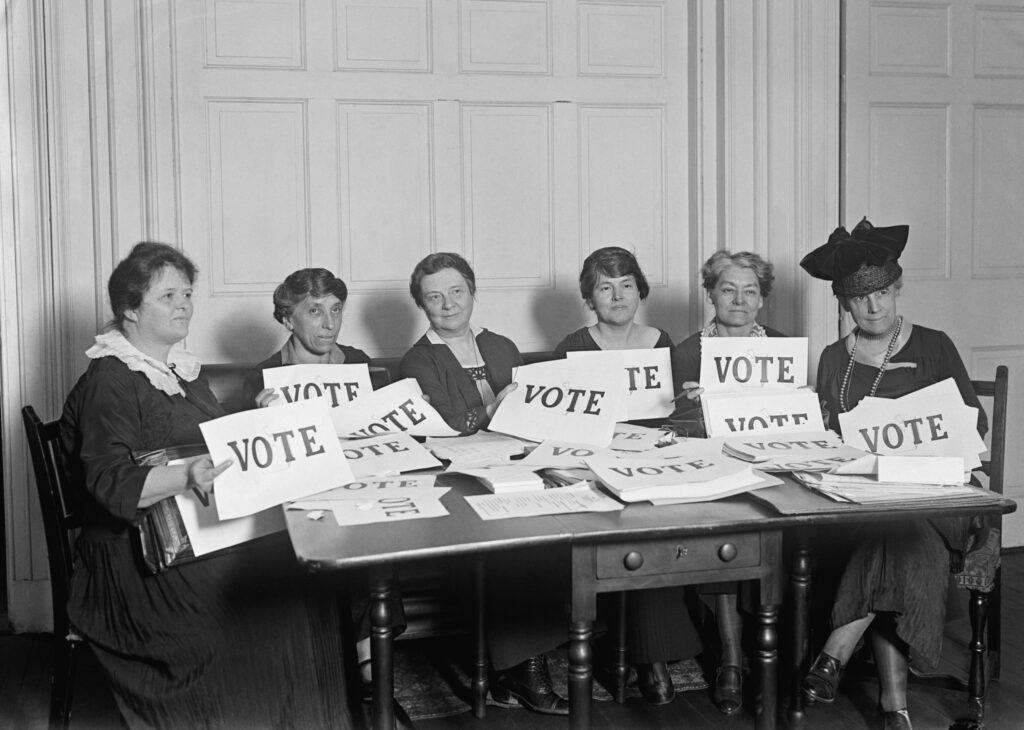The modern trad wife movement is gaining traction, but it might be undoing decades of progress for women.

You’ve probably seen the rise of the “modern trad wife” ideal lighting up your social feeds—an image of femininity centered on homemaking, submissiveness, and retro aesthetics. On the surface, it might seem harmless, even charming. For some, it offers comfort in clearly defined roles and a nostalgic longing for perceived simplicity. But when we look deeper, this trend could be a subtle step backward in how we view women’s autonomy, strength, and the progress hard-fought over generations.
1. The trad wife lifestyle glorifies submission over independence.

On the surface, adopting a more “traditional” role might look like a personal choice rooted in values. But the trad wife ideal often hinges on the notion that submission is not just acceptable—it’s desirable. This narrative promotes the idea that women are at their best when they yield to their husbands, stepping back from decision-making and allowing a man to lead, according to Michaela Bramwell at BuzzFeed. While every relationship is different, glorifying this imbalance as a virtue sends a message that female autonomy is somehow disruptive or wrong.
2. It discourages women from prioritizing their own dreams.

There’s something troubling about how often the trad wife narrative romanticizes self-sacrifice. You’ll notice that within this movement, women are praised for how well they support their husbands and raise children, but rarely celebrated for chasing their own ambitions. It teaches that fulfillment should come from helping others achieve their dreams rather than building one’s own. That’s not balance—it’s erasure, as mentioned by Alena Kate Pettitt at The Darling Academy.
3. It promotes outdated gender roles that limit potential.

The message at the core of the trad wife trend is that women are best suited for the home, and men for the world beyond it. While there’s nothing wrong with enjoying domestic life, making it a default expectation for all women limits the spectrum of possibility. Gender roles from the past didn’t evolve because they were perfect—they were challenged because they held people back.
4. It downplays the importance of financial independence.

A major blind spot in trad wife culture is its casual dismissal of financial autonomy. The idea that a woman can—or should—rely on her husband for money may sound appealing in a world of economic stress, but it places an enormous amount of power in someone else’s hands. Life is unpredictable, and placing your future in another’s control makes you vulnerable to instability and even abuse.
5. It paints a false picture of “perfect” relationships.

Scroll through trad wife content and you’ll be greeted with scenes of perfectly manicured homes, soft lighting, and husbands being served dinner with a smile. It’s easy to get pulled into the fantasy, but it’s just that—a fantasy. Real relationships are built on communication, compromise, and mutual respect, not flawless aesthetics and one-sided effort.
6. It subtly blames women for marital problems.

One of the most insidious aspects of the trad wife mindset is how it positions women as the ones responsible for making a marriage work. If things go wrong, the implication is that the woman didn’t submit enough, didn’t serve enough, didn’t smile enough. This skewed accountability is unfair and emotionally damaging.
7. It romanticizes an era when women had fewer rights.

Much of the trad wife aesthetic draws inspiration from the 1950s—a time that, on the surface, seems neat, ordered, and idyllic. But behind the curtain was a reality where women had limited access to education, career advancement, legal rights, and reproductive autonomy. This wasn’t a golden age for most women—it was a cage with floral wallpaper.
8. It can make women feel isolated and undervalued.

Dedicating your life to your family is a beautiful choice—but when it becomes your entire identity, it can also become a lonely one. The trad wife lifestyle often sidelines social support, creative outlets, and community engagement, leaving women cut off from the very things that foster emotional wellness. This kind of isolation isn’t always visible, but it weighs heavy.
9. It encourages women to ignore their mental health needs.

In a lifestyle that prioritizes appearance and service, there’s little room for vulnerability. Trad wife culture encourages women to put on a happy face and keep going, no matter how exhausted, anxious, or depressed they may feel. This relentless cheerfulness leaves no space for emotional honesty—and that can be dangerous.
10. It perpetuates unhealthy beauty standards.

The trad wife aesthetic often includes a heavy dose of vintage glamor—pin curls, nipped waists, and picture-perfect smiles. While there’s nothing wrong with dressing up, tying your value to a carefully curated appearance is a recipe for insecurity. This focus on external perfection reinforces the idea that a woman’s worth lies in how well she performs femininity.
11. It shifts focus away from equality in relationships.

The heart of any healthy relationship is equality—shared power, mutual respect, and open communication. The trad wife model, however, often positions one partner as the leader and the other as the supporter. This imbalance can feel comforting for some, but it ultimately undermines the spirit of true partnership.
